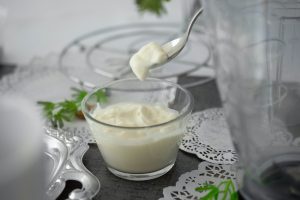
The Greek yogurt that has been flying off the shelves in grocery stores, has proven to be not so Greek after all. Two separate class action lawsuits have been filed against Chobani and Fage, two of the largest producers of the product in the U.S. “The plaintiffs claim that Chobani and Fage are purposefully misleading customers by hiding the amount of sugar in their products, and by calling themselves Greek”. The men behind the suit claim that through misguided labeling, they are leading customers to believe that their products contain little to no sugar. The term “evaporated cane juice” in the listed ingredients is at the center of this misrepresentation.
“Defendants purposefully misrepresented and continue to misrepresent to consumers that their products contain ‘evaporated cane juice’ even though ‘evaporated cane juice’ is not ‘juice’ at all -– it is nothing more than sugar dressed up to sound like a healthier sweetener”. The suit claims the the 0% on many Chobani yogurt containers, might have consumers confused that this means no sugar or calories, not just 0% fat because it is displayed prominently without any context. The plaintiffs also claim, that calling the yogurt Greek is another misrepresentation, because the yogurt is not actually produced in Greece by Greek nationals, but in several states across the U.S. Chobani countered this argument stating, “Much like English muffins and French fries, our fans understand Greek yogurt to be a product description about how we authentically make our yogurt and not about where we make our yogurt in upstate New York and Idaho.” The amount of sugar in these “healthy” yogurts is also being contested, because many flavors actually contain more sugar than an ice cream bar, and it is regularly advertised as a health food staple.
A similar lawsuit was recently dismissed in California, because there was no evidence to support that consumers are buying these products under these assumptions. Chobani has several contracts with schools across the nation to provide their yogurt as a protein substitute for meals. These yogurt products have become popular for dieters across the country, are they not as healthy as they seem?



